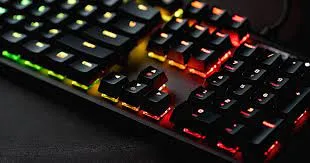NVIDIA has introduced two new entry-level Ada GPUs, the RTX 1000 and the RTX 500 to its laptop lineup, aiming to democratize AI-readiness across user segments.

All About the NVIDIA RTX 1000 & RTX 500 GPU
The RTX 1000 and RTX 500 Ada GPUs, from NVIDIA are designed for entry-level laptops focusing on enhancing AI performance. By harnessing Ada’s hardware capabilities, these processors claim to deliver up to 14 times faster AI speed and three times AI-driven photo editing. Moreover, they boast an increase in graphics performance for tasks such as rendering and content creation compared to using CPUs.

While CPUs have incorporated AI features through NPU technologies GPUs continue to outperform them in terms of performance. NVIDIA’s introduction of these two products expands access to performance levels for a wider range of users. While NPUs excel in low-power AI operations the RTX 1000 and RTX 500 GPUs from NVIDIA provide performance enhancements over systems lacking dedicated GPUs ensuring quicker task completion. Notable features of this lineup include:
- Third-generation RT Cores that offer double the ray tracing performance for rendering.
- Fourth-generation Tensor Cores that provide twice the throughput for deep learning tasks and AI-driven creative tasks.
- Ada Generation CUDA cores that deliver up to 30% single precision floating point throughput, for graphics and computational performance.
- The RTX 500 comes with 4GB while the RTX 1000 offers 6GB enabling smooth operation of demanding 3D modeling and AI applications. Both GPUs come with core setups, CUDA cores, RT cores, and Tensor Cores.

- The RTX 1000 Ada GPU packs 6GB of VRAM whereas the RTX 500 Ada GPU carries 4GB. In terms of power consumption, the RTX 1000 Ada ranges from 35 140W while the RTX 500 Ada falls within the range of 35 60W.
In terms of performance, the RTX 1000 Ada offers 12.1 TFLOPs of FP32 and up to 193 TOPS (INT8), while the RTX 500 Ada offers 9.2 TFLOPs of FP32 and up to 154 TOPS (INT8). Both GPUs are already available in laptops from Dell, Lenovo, and MSI, offering AI-infused capabilities at reasonable price points.








